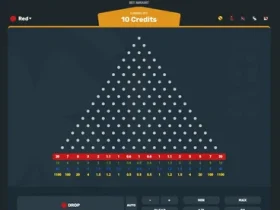Crash gambling is built on suspense. Each round begins with a rising multiplier, and players must decide when to cash out before it suddenly crashes. The unpredictability of the crash point is what gives the game its thrill—but also raises an important question among UK players: can the crash casino games be predicted, or is it purely random?
Let’s explore whether predicting the crash is a genuine skill or just another gambling myth.
How Crash Games Work
Before diving into prediction claims, it’s important to understand how crash games operate. Most reputable crash games, like Aviator or JetX, use random number generators (RNGs) or provably fair algorithms. These ensure the crash point is determined randomly before the round begins, and not influenced by player behavior.
In provably fair games:
- The crash multiplier is generated using a cryptographic hash.
- The hash is created before the round starts.
- Players can verify results after each round.
This system is designed to eliminate manipulation and ensure fairness.
The Myth of Prediction
Many players claim they’ve noticed patterns—like several low multipliers in a row being followed by a high one. This fuels the belief that the crash can be predicted by watching recent rounds. While it might feel like a skill-based observation, this belief is largely based on gambler’s fallacy—the mistaken idea that past outcomes influence future ones in a random system.
Example:
- If five rounds crash under 1.5x, players might expect a big multiplier next.
- In reality, each round is independent; previous outcomes have no effect.
Crash games are built to appear streaky, but the results are driven by algorithms, not patterns.
Strategies That Feel Like Prediction
Some players use fixed strategies that mimic prediction, even if they don’t truly predict outcomes. These include:
- Low-multiplier auto cash-outs to reduce risk.
- Martingale betting after losses, assuming a win is “due.”
- Observation of recent rounds to time bigger bets.
While these tactics may provide structure or short-term success, they don’t actually predict when a crash will occur.
The Role of Skill
While crash games are fundamentally random, some elements can be influenced by skill:
- Bankroll management: Knowing how much to bet and when to stop prevents impulsive decisions.
- Emotional control: Recognizing when to walk away helps avoid tilt-based losses.
- Discipline in cashing out: Consistently cashing out at reasonable multipliers rather than chasing unrealistic gains.
So while you can’t predict the crash point, you can develop skills that improve your long-term results through better decision-making.
What About Bots and Signals?
Some third-party tools claim to offer crash predictions or signals. These may suggest the next likely multiplier based on recent rounds. However:
- They do not access the underlying random seed.
- They’re based on pattern speculation, not real data.
- Most are unreliable and could mislead players.
Using such tools can lead to false confidence and higher risk-taking.
Are There Any Exceptions?
In rare cases, unregulated or unlicensed casinos may offer crash games without provably fair systems. If the crash point is not transparently generated, manipulation becomes possible—by the operator, not the player. This highlights the importance of playing on trusted platforms with clear fairness protocols.
Conclusion
Predicting the crash is more myth than skill. While crash gambling involves fast decisions and can reward disciplined play, the multiplier’s stopping point is determined by secure, random processes that cannot be forecast. Players looking for consistent success should focus on managing bets, staying disciplined, and avoiding the trap of trying to outguess a system designed to be unpredictable. The excitement of crash lies in its uncertainty—and the skill is in how you handle it, not in predicting it.
















Leave a Reply